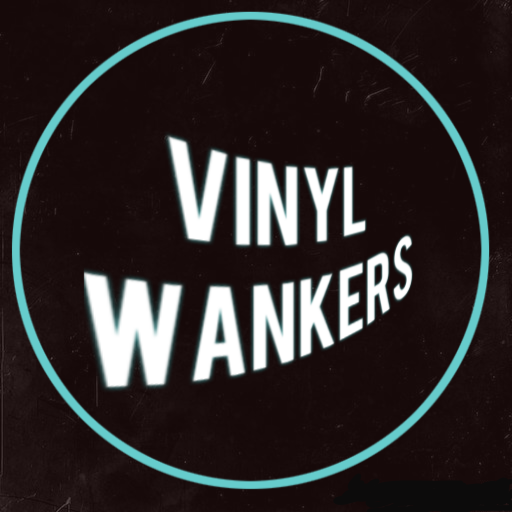
An Argument with a Hipster Troll: Why Psychedelic Music Does Not Begin and End with the Beatles
April 2020 was the 50th anniversary of the album Yeti (1970) by Amon Düül II, so I celebrated and commemorated by posting my thoughts about this album and sharing a humorous meme where Charlie Brown is about to listen to Yeti. The other character has a thought bubble (“Always Charlie plays strange records, why can’t we just listen to the Beatles?”)
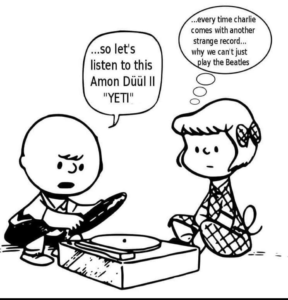 A person commented on my post with a question (“Haven’t you ever heard of the Beatles’ acid phase?”) that he must have intended as sarcastic since the Beatles’ influence on popular music has been constantly cataloged, praised, and worshiped by both critics and the public. On the Rolling Stone list of the 500 greatest albums of all time, half of the top 10 are Beatles with Sgt. Pepper’s predictably being awarded the crown as the greatest album of all time.
A person commented on my post with a question (“Haven’t you ever heard of the Beatles’ acid phase?”) that he must have intended as sarcastic since the Beatles’ influence on popular music has been constantly cataloged, praised, and worshiped by both critics and the public. On the Rolling Stone list of the 500 greatest albums of all time, half of the top 10 are Beatles with Sgt. Pepper’s predictably being awarded the crown as the greatest album of all time.
“Of course, I know the Beatles’ psychedelic phase,” I answered and in my reply talked about “Tomorrow Never Knows” as innovative and pioneering in its production. For my ears, “Tomorrow Never Knows” is the Beatles’ best psychedelic track.
This answer was not enough to satisfy this Beatles cult, rabid super fan. He argued with me that “Tomorrow Never Knows” was “catchy” and that the Beatles’ best psychedelia was to be found on Sgt. Pepper’s and that 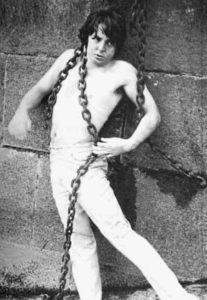 “Revolution 9” was the trippiest track of all time. I argued that Sgt. Pepper’s was cartoonish and overproduced (read Saliha Enzenauer’s scathing, superb takedown in her article in the Hall of Shame section here on Vinyl Writers.) I argued that Sgt. Pepper’s consists mainly of dance hall music and pop with a psychedelic sprinkling. I also argued that “Revolution 9” is merely an attempt at a provocative sound collage and that it is not necessarily “psychedelic”.
“Revolution 9” was the trippiest track of all time. I argued that Sgt. Pepper’s was cartoonish and overproduced (read Saliha Enzenauer’s scathing, superb takedown in her article in the Hall of Shame section here on Vinyl Writers.) I argued that Sgt. Pepper’s consists mainly of dance hall music and pop with a psychedelic sprinkling. I also argued that “Revolution 9” is merely an attempt at a provocative sound collage and that it is not necessarily “psychedelic”.
What he was defining as “psychedelic” and I was defining as “psychedelic” were clearly divided. He was preoccupied with production values, while I prefer psychedelic music that evokes an altered state of consciousness. I argued that psychedelic music cannot be too polished or it simply does not satisfy the complexity of a psychedelic experience. I never asked him if he had ever done hallucinogenic drugs, but I was not ashamed to admit that I have explored the inner spaces of my mind throughout the years with LSD and psilocybin mushrooms.
Once I shared this information with him, he resorted to clumsy personal attacks against me to reinforce his intellectual superiority. These attacks included “Your drug use makes you think Amon Düül II are better than the Beatles, but they’re just a jam band and can be considered pop rock” and “Your ego is getting in the way of acknowledging the Beatles as the giants of psychedelia.”
His assertions about the Beatles, Sgt. Pepper’s, and “Revolution 9” are extremely laughable and remind me of conversations and discussions I’ve had with hipsters who condemn any music outside of math rock or noise rock or prog rock because it makes them so intellectually superior.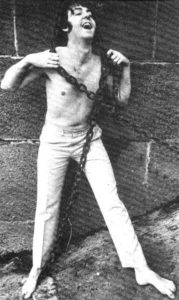
The narrative that psychedelic music began in 1967 with Monterey Pop, Sgt. Pepper’s, and the San Francisco scene and ended in 1969 with Abbey Road and Woodstock is an Anglocentric and extremely narrow perspective on psychedelia. In my opinion, the breakup of the Beatles and the death of the hippie dream at Altamont with the Rolling Stones in 1969 was simply the start of psychedelic music. The peak of psychedelic music unfolded in Germany in the early 1970s.
From the years 1970 – 1974, a new generation of young German musicians played psychedelic music (derogatorily nicknamed “Krautrock” by the American and British media) that was light years beyond the American and British bands of that era. Many of these German musicians preferred the term “kosmische musik” and “cosmic music” is a more accurately descriptive moniker (than Krautrock) for the albums released during this time.
Yeti is dark and Gothic, fiery guitar and gypsy violin madness, primitive and primordial tribal percussion, wild witchcraft. Florian Fricke and Holger Trulzsch of Popol Vuh experimented with electronics (Moog synthesizer) and African and Turkish percussion on In Den Garten Pharaos (1971) to create a deeply mystical, spiritual transcendence. Tago Mago (Can, 1971) moved into a completely different lyrical and vocal territory than the American and British bands because of Damo Suzuki’s chanting, improvisatory, incantatory singing that meshed with the relentless rhythms of bassist Holger Czukay and drummer Jaki Liebezeit. Can encompassed electronics, funk, and world music. While the American and British bands typically did not get any more exotic than an inclusion of an occasional sitar, Agitation Free assimilated a diverse array of influences from their 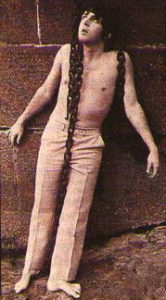 travels to Cyprus, Egypt, Greece, and Lebanon that bloomed like cactus flowers in their desert masterpiece Malesch (1972). Tangerine Dream embarked upon a voyage to the ancient pyramids, temples, ziggurats, rain forests, and subterranean caverns in the cinematic, epic, widescreen Atem (1973). Dzyan emitted an engulfing experience (Electric Silence, 1974) intermingling international and interplanetary soundscapes.
travels to Cyprus, Egypt, Greece, and Lebanon that bloomed like cactus flowers in their desert masterpiece Malesch (1972). Tangerine Dream embarked upon a voyage to the ancient pyramids, temples, ziggurats, rain forests, and subterranean caverns in the cinematic, epic, widescreen Atem (1973). Dzyan emitted an engulfing experience (Electric Silence, 1974) intermingling international and interplanetary soundscapes.
Disco and punk in the late 1970s and heavy metal, hip-hop, and new wave in the 1980s made psychedelic music recede into the shadows. However, psychedelic music re-emerged in different incarnations in the 1990s and in the 2000s/2010s.
The bottom line? The next time a hipster troll tells you that psychedelic music began and ended with the Beatles and tries to shove Sgt. Pepper’s down your throat, give him a high dosage prescription of German kosmische musik!
by Mark Lager
(Read all Vinyl Wankers installments here)

[…] They will try to convince you that it was this “Ob-La-Di, Ob-La-Da” brass band that invented Psychedelic Music (!) and even Heavy Metal (!!). In the finest brainless capitalist manner, they will buy every […]
I remember that post, Mark.
It´s almost impossible to argue on a positive way with these people, they are locked inside a bubble of extreme fascination. I’m glad you stopped his perpetuation of intellectual superiority. It´s entirely valid to give an opinion, but that kind of judgement needs to be stopped. The demonization of psychedelic drugs is very annoying, I can almost assure that this person has no idea about the specific purpose of these kind of substances.
I agree that Sgt. Pepper is extremely overrated (Saliha´s destruction was necessary). For me, the early Beatles stuff is better, their “acid” and “experimental” period is extremely shameful.
Excellent observation, “Revolution No.9” is an awful and laughable collage of sounds, where is the “experimentation” ?. The German “kosmiche music” is a K.O argument. I have no opinion about Amon Düül II, but I’m aware of their cult in certain sectors. Need to check out “Yeti”.
Finally, I agree with the “psychedelic music revival”. The Verve´s “A Storm In Heaven” is a perfect example (your article got me engaged into that album).
Paul in bondage, my eyes are bleeding
“Vinyl Wankers” episodes are absolute top-notch lessons. Looking forward for the next one… Thanks, Mark !
Cheers Octavio!
THANK YOU!
So you’re a Stones girl?
Great article, Mark. That early seventies kosmische musik period was amazing and for me there are still many bands to find. I’m still lost in Sorabji’s rose garden or Ligeti’s lux aeterna.
Cheers Mika!
These pictures Lennon and McCartney’s voices kill every psychedelic attempt in my opinion. Fresh article!
Lennon and McCartney’s voices kill every psychedelic attempt in my opinion. Fresh article!
Ridiculous article. Ridiculous! This ‘troll’ certainly knows more about psychedelic music than you do. The Beatles created many psychedelic masterpieces, and yes Amon Duul soundsl like an elementary school band jam compared to them.
Tim,
Once again, what I find funny here is that I actually praised one of the Beatles’ psychedelic tracks (“Tomorrow Never Knows”) but as soon as I suggest that the cultural dominance and critical worship of the Beatles overshadows much more psychedelic musicians–Beatles fans have no actual argument, they resort to trivializing other musicians.
Listen to Amon Düül II’s Yeti more closely with fresh ears. Of course, it’s not polished pop like the majority of the Beatles’ material–it’s darker and wilder, but it’s much more psychedelic than the Beatles.
This is too good, a polite destruction!
Great deconstructions of the hipster argument that everything is based around the Beatles in some form. They will even crediting the Fab with the advent of Heavy Metal (Helter Skelter). God help us. It’s a bit to much for me to take. And I find myself running off in another direction. Far from the culture domination of the Beatles rabid fan base. ( Saliha, I must mention that I love the addition of the Paul in Bondage picture. It’s perfect to Mark’s narration). For an antidote to all this, try Opium Eyes of Nico’s fantastic Tomorrow Never Knows or Laibach perfect take on Across the Universe. So righteous that you can almost forget these Fab Vinyl Wankers
Shawn,
I enjoyed your takedown of prog rock in your Flamen Dialis article. The Beatles and prog rock do not make a music listener intellectually superior to someone who is not the biggest Beatles fan or a fan of ELP, Genesis, Rush, etc.
Hi Mark,
I completely agree – not just because the Beatles are notoriously and sickeningly overrated and have the worst, most militant and obnoxious cultish fans – never got I attacked more personally and rudely than when I wrote my Sgt. Pepper article. But you make a very important point about what psychedelic music is, and when it really exploded. Throughout my life I was so often confused when people would talk about ‘psychedelic’ tracks of the 60s, that were not psychedelic to me at all. I always compared to German and Turkish psych, music that peaked and lived on for many years after Altamont.
I had a good laugh here and couldn’t resist to include this ‘beastly’ pictures of McCartney… muhahahaha
Saliha,
These photos of Paul McCartney in bondage crack me up!